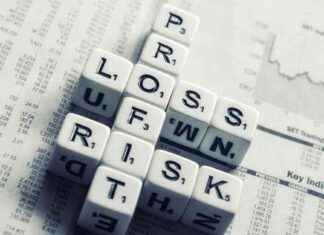80 million kilometers of networks must be added or renewed by 2040, the equivalent of all the current networks in the world
MADRID, 17 Oct. (EUROPA PRESS) –
The International Energy Agency (IEA) has estimated that current investment in electrical networks must double, reaching 600,000 million dollars (about 568,926 million euros) annually until 2030, to avoid the risk of them becoming the ” “weak link” in the transition to clean energy.
In a global study, the first of its kind carried out by the institution, the current “lack of ambition” in this matter is warned and it is considered that the world must add or renew 80 million kilometers of networks by 2040, the equivalent of all current networks in the world, to meet the goals set to meet climate objectives and support energy security.
Thus, the IEA believes that efforts to address climate change and ensure a reliable supply of electricity could be “in jeopardy” unless policymakers and companies take “rapidly measures to improve and expand global electricity networks.”
In this sense, the Paris-based organization points out that there are at least 3,000 gigawatts (GW) of renewable energy projects, of which 1,500 GW are in advanced phases, waiting in line for connection to the grid – equivalent to five times the amount of solar PV and wind capacity added in 2022 – confirming that networks are becoming “a bottleneck for transitions to net zero emissions.”
For this reason, it highlights that, although investment in renewable energies has been increasing rapidly – almost doubling since 2010 -, global investment in networks has barely changed and remains stable at around 300,000 million dollars (284,463 million euros) per year.
Thus, the IEA report believes that there are signs that the rapid growth of key clean energy technologies, such as solar, wind, is not keeping pace with regard to electrical networks; or electrification.
“Without greater policy attention and investment, shortcomings in the reach and quality of grid infrastructure could put the goal of limiting global warming to 1.5 degrees Celsius out of reach and undermine energy security,” warns the study.
“The recent clean energy progress we have seen in many countries is unprecedented and cause for optimism, but could be at risk if governments and businesses do not come together to ensure the world’s power grids are ready for the new economy.” rapidly emerging global energy,” said IEA Executive Director Fatih Birol, calling for “investing in networks today or facing stagnation tomorrow.”
Additionally, the report identifies several strategic actions that can make a difference, such as expanding and strengthening grid interconnections within countries, between countries and between regions to make electricity systems more resilient and allow them to better integrate the growing shares of solar energy. and wind.
Additionally, it recommends that governments support large-scale transmission projects to ensure networks are prepared for further strong growth in renewable energy, and urges network developers and operators to embrace digitalization to enable the networks of the future. be “more resilient and flexible.”
Therefore, the IEA emphasizes that the need for action “is urgent” due to the long timeframes to modernize and expand networks, since planning, authorizing and completing a new network infrastructure usually takes between 5 and 15 years, compared to 1 to 5 years for new renewable energy projects and less than 2 years for new electric vehicle charging infrastructure.







